About Ducks
Many people ask whether ducks make good companions. Ducks are omnivores that live in both fresh- and saltwater habitats. The scientific name of the animal is Anas platyrhynchos. They live in groups, have waterproof feathers, and can turn their heads backward to clean themselves. Ducks are native to every continent except Antarctica and will migrate in search of food and mates. Baby ducks, or ducklings, are born in clutches of 12 and live in the wild for about ten years. Coyotes, raccoons, and possums eat adult ducks. Snapping turtles, big fish, and herons eat ducklings.
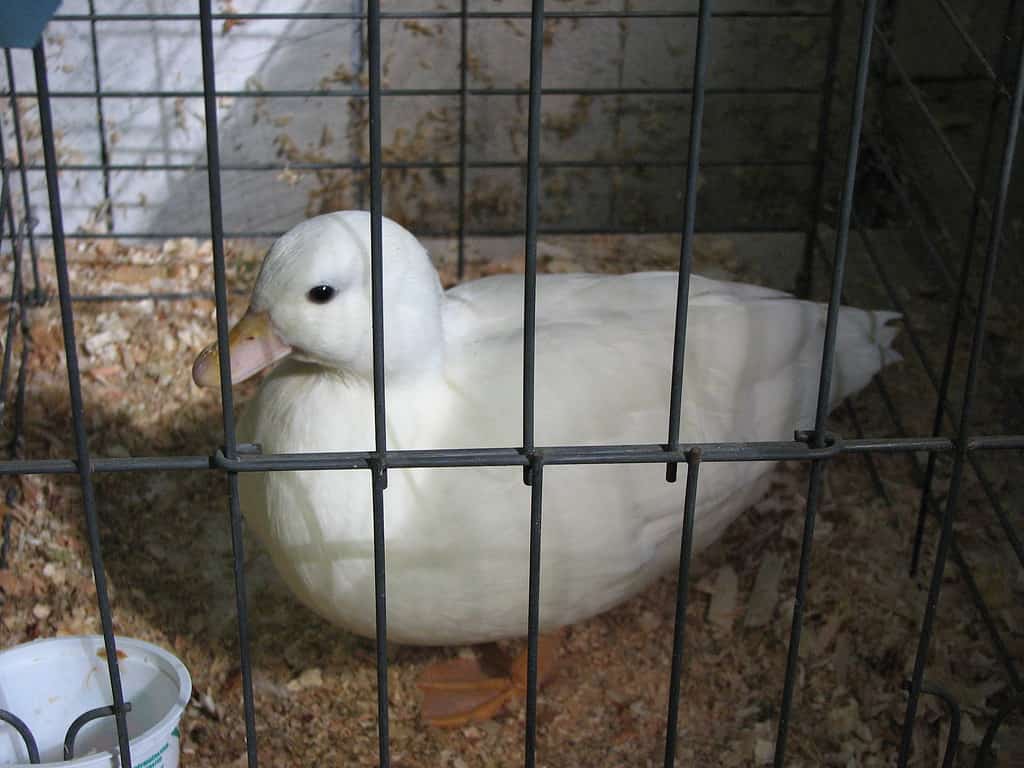
Ducks
need a large coop to shelter in.
©Gord Webster from Victoria, Canada / CC BY-SA 2.0 – License
So, Do Ducks Make Good Pets?
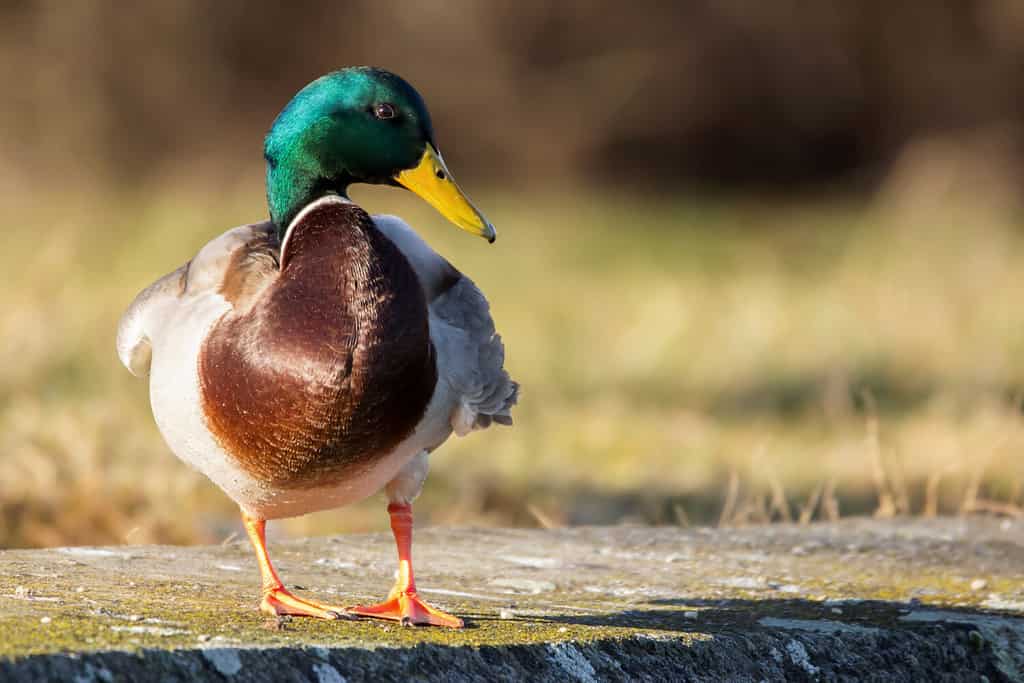
Ducks use about one liter of freshwater a day to clean themselves.
©Luka Hercigonja/Shutterstock.com
Ducks are wild animals and thus should be left in the wild. That being said, if you are responsible and diligent you can keep them as pets. Remember, these animals are completely dependent on you to survive. Only get pet ducks if you have the time and capacity. They will most likely do better on farms than in the city and you should not get a duck if you don’t have plenty of green space for them to roam. People commonly keep either the Muscovy or Northern Mallard as pets.
For those interested in animal husbandry, ducks can be quite valuable. Their eggs, meat, down, and attitudes make great additions to farms. However, humans must approach ducks with respect as equals, rather than as property. Do not focus on productivity or output. Instead, focus on only taking what you need and providing the animals the best quality of life you can.
Pros
1. They Are Cuddly and Affectionate
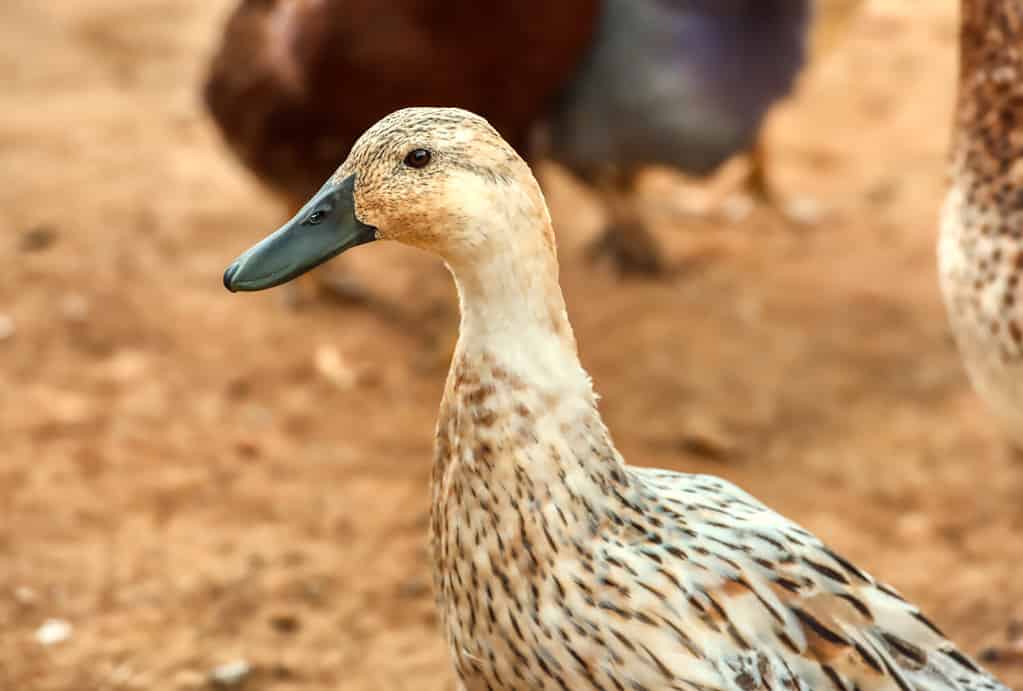
If you take care of them well, ducks can live up to 20 years.
©Joe Herlong/Shutterstock.com
Each duck has a unique and quirky personality. While there are always exceptions, if you raise your duck from a hatchling it will grow accustomed to and enjoy human contact and company. If you are affectionate toward them, they can enjoy being pets. They may even sit in your lap and fall asleep.
Plus, you can get joy in watching them interact with one another via preening and sleeping in cuddle puddles. Ducks also generally get along with other animals in the house if the human introduces them properly. Once bonded with you, your ducks will follow you around and excitedly squawk when you approach.
2. They Can Be Trained
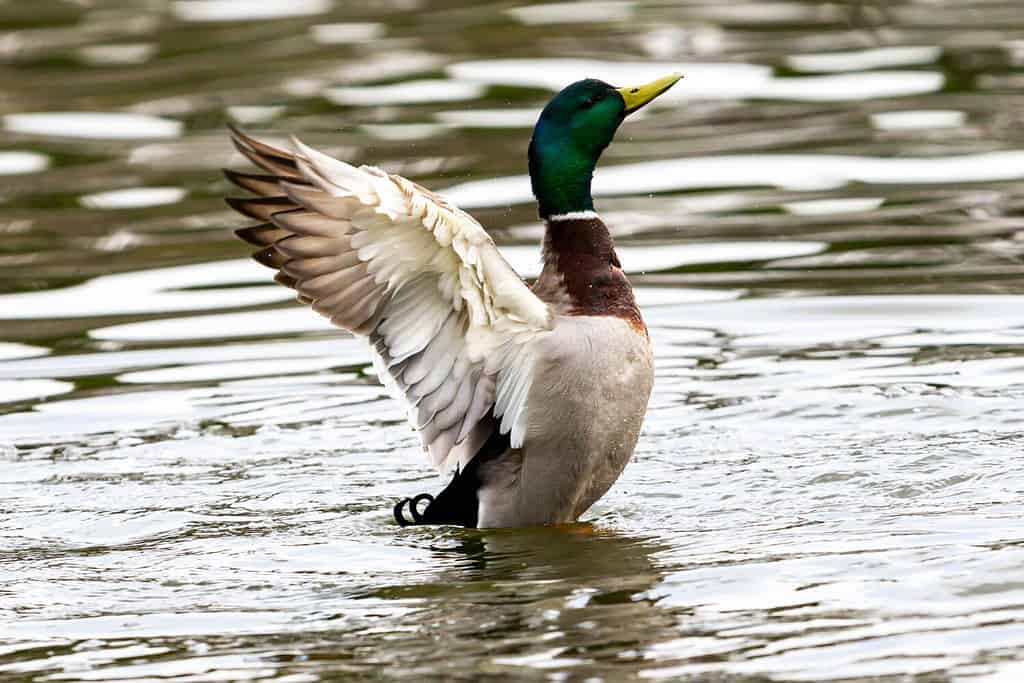
Check with your city before getting a pet duck.
©Marta Fernandez Jimenez/Shutterstock.com
Ducks are quite intelligent, and you can train them if you’re diligent and gentle. The animal will respond positively to treats and reinforcement. Plus, you can offer your ducks toys to engage with. Ducks love to play games and use their intelligence to solve puzzles and gain prizes. You can train your duck to go inside its coop during the night and to come out in the morning to roam. These animals are also quite resilient and adapt well to changes in weather or food supply. For example, ducks will eat the bugs in your home to supplement their diet.
3. They Can Be Great with Children
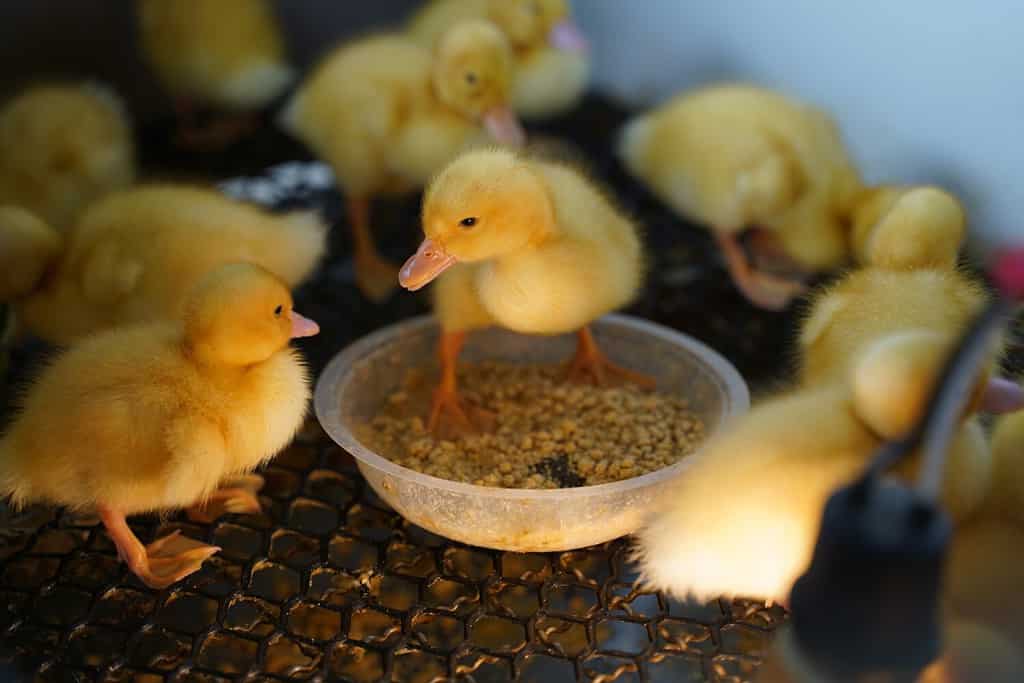
Train your child to gently care for and handle the duck before bringing the waterfowl into your home.
©CHI-CHEN/Shutterstock.com
Despite popular opinion, ducks have calm and gentle demeanors. They make great companions for children. Of course, you must properly prepare your small humans before you bring pets into their lives. Supervise your kids while they get to know and care for the animals. Since the ducks can grow to love pets, they will potentially be open to your child stroking their bodies. However, they usually don’t like it when people pick them up.
Cons
1. They are Messy
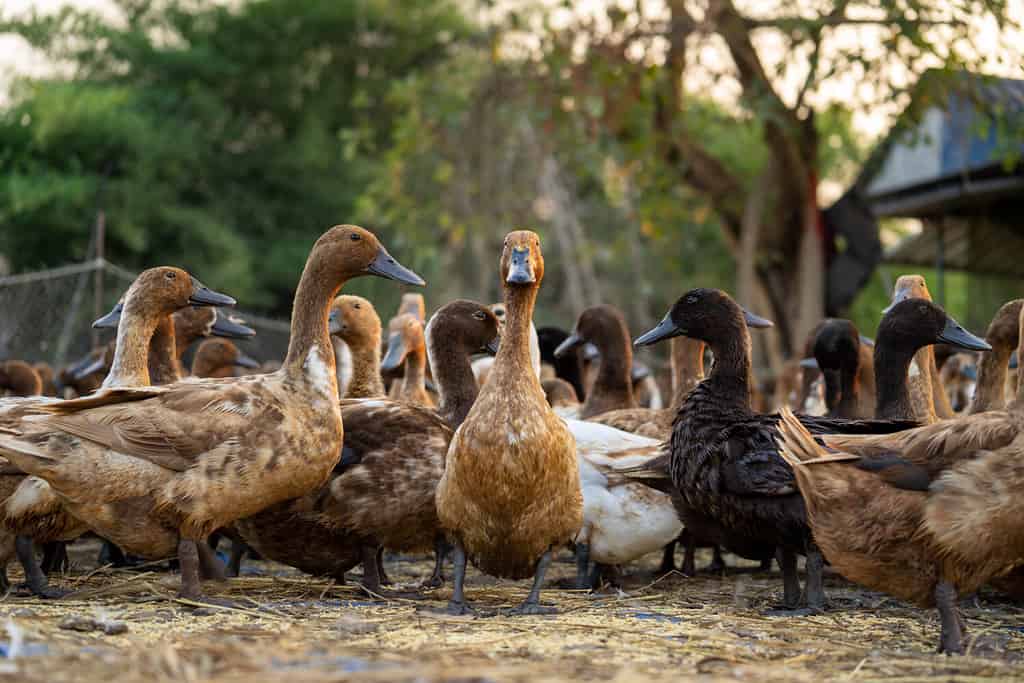
Ducks will poop on every surface, even in the water.
©SIM ONE/Shutterstock.com
Ducks are quite cute and can be fulfilling to have as pets. However, they are also very messy. They do not poop in specific places and instead will cover their enclosure and your yard with droppings. You’ll have to clean out their coop daily to maintain the health of your ducks. In addition, they love to splash around in water, which leaves a muddy mess everywhere. You’ll need to give them plenty of room to create this mess, both through an enclosure and a yard space. Plus, they’ll need a pond or large body of water to play and swim in daily.
2. They are Loud
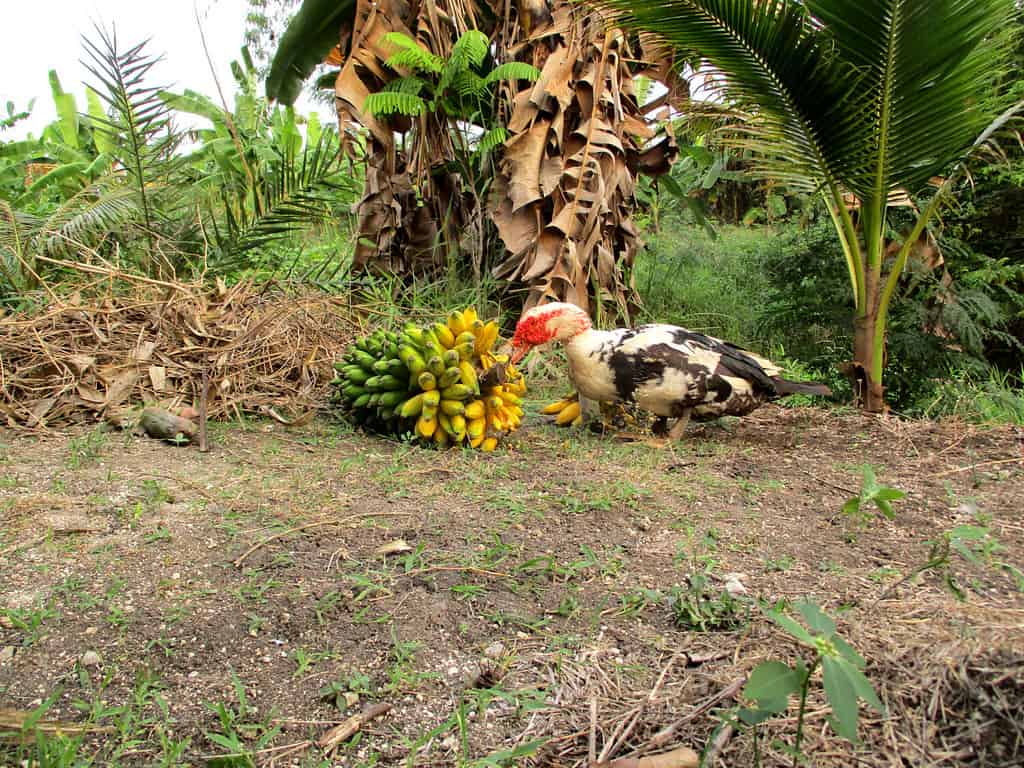
Ducks have individual calls.
©SUPAPORNKH/Shutterstock.com
As social creatures, ducks love to chat the day away. They use their voices to communicate with one another and to express their needs. If you live in a city and don’t have a lot of green space, you shouldn’t get ducks. They might bother your neighbors and wake people up abruptly. Their noise level will also attract predators such as coyotes and raccoons looking for an easy meal.
3. They Need to Live in Groups
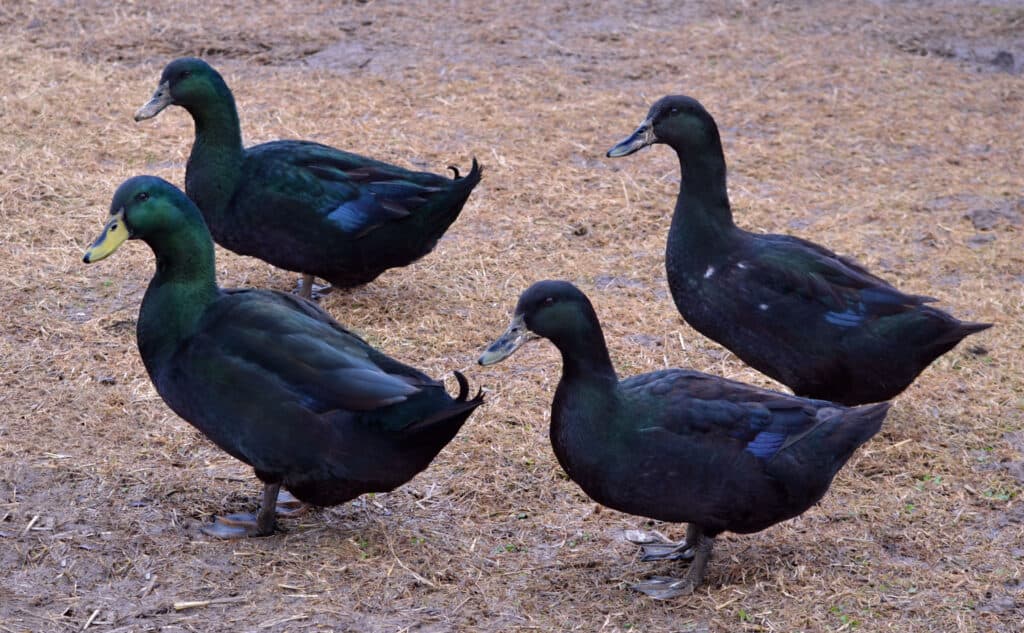
Ducks cannot live alone.
©MaryAnne Campbell/Shutterstock.com
If you want to have pet ducks, you can’t simply get one. You need to get a group of the animals. Ducks cannot live alone, even if you have other animals. They will suffer loneliness and depression if left alone and could hurt themselves. Because of this, and specialized vet care, you can expect greater expenses if you choose to keep ducks as pets. Each duck will need an annual vet visit, and potentially emergency vet visits, and a practitioner can be difficult to find.
The photo featured at the top of this post is © Paul Johnathon Burke/Shutterstock.com
Thank you for reading! Have some feedback for us? Contact the AZ Animals editorial team.







